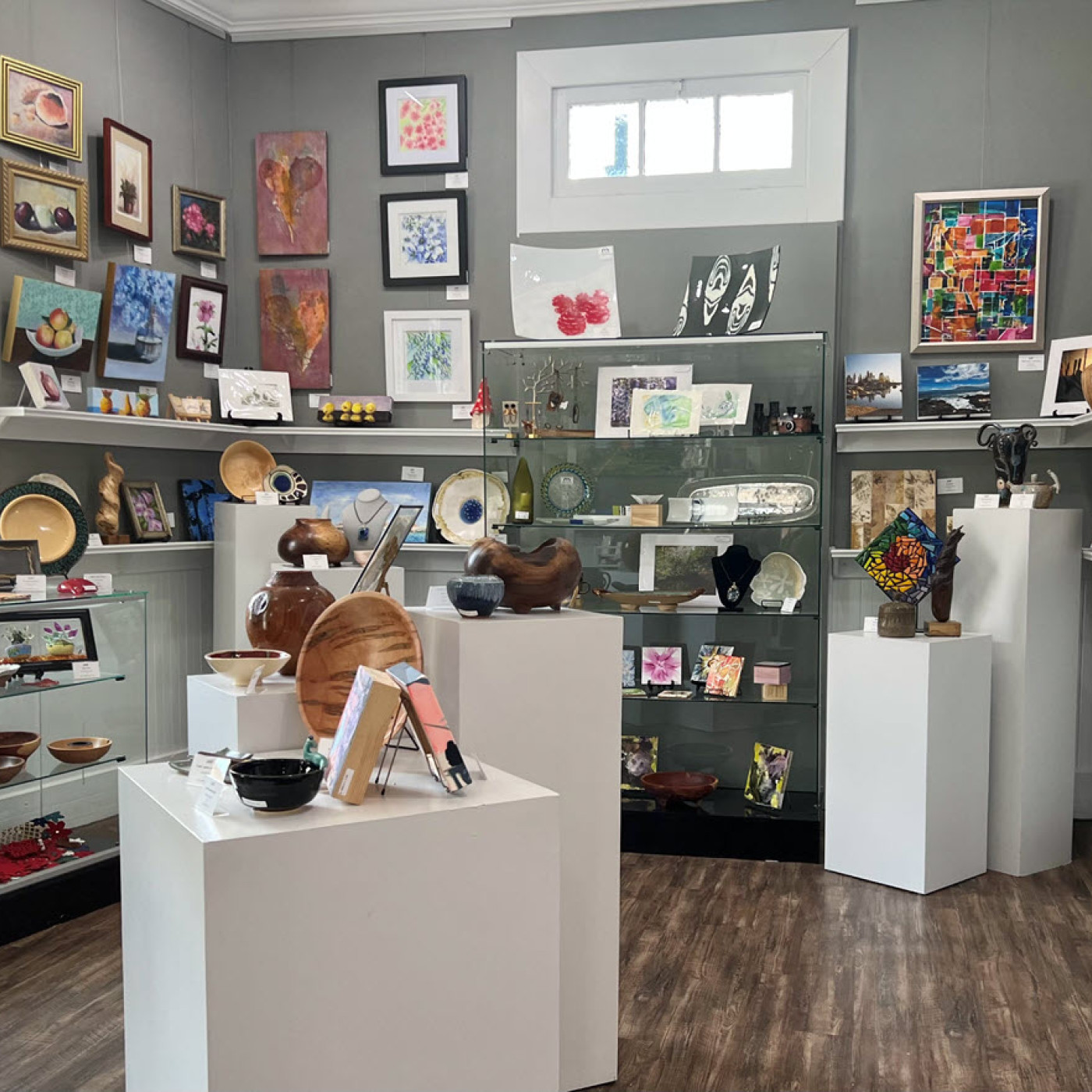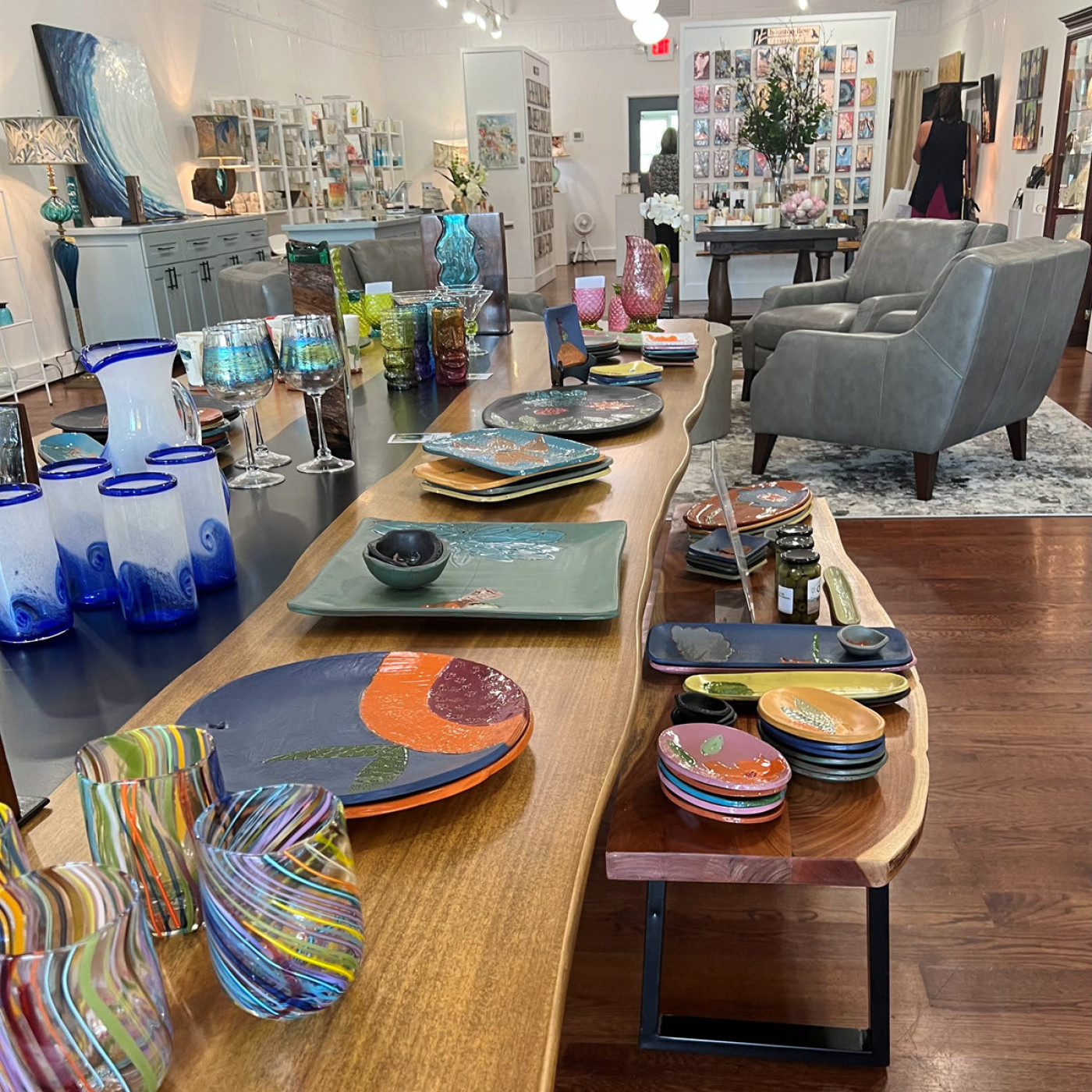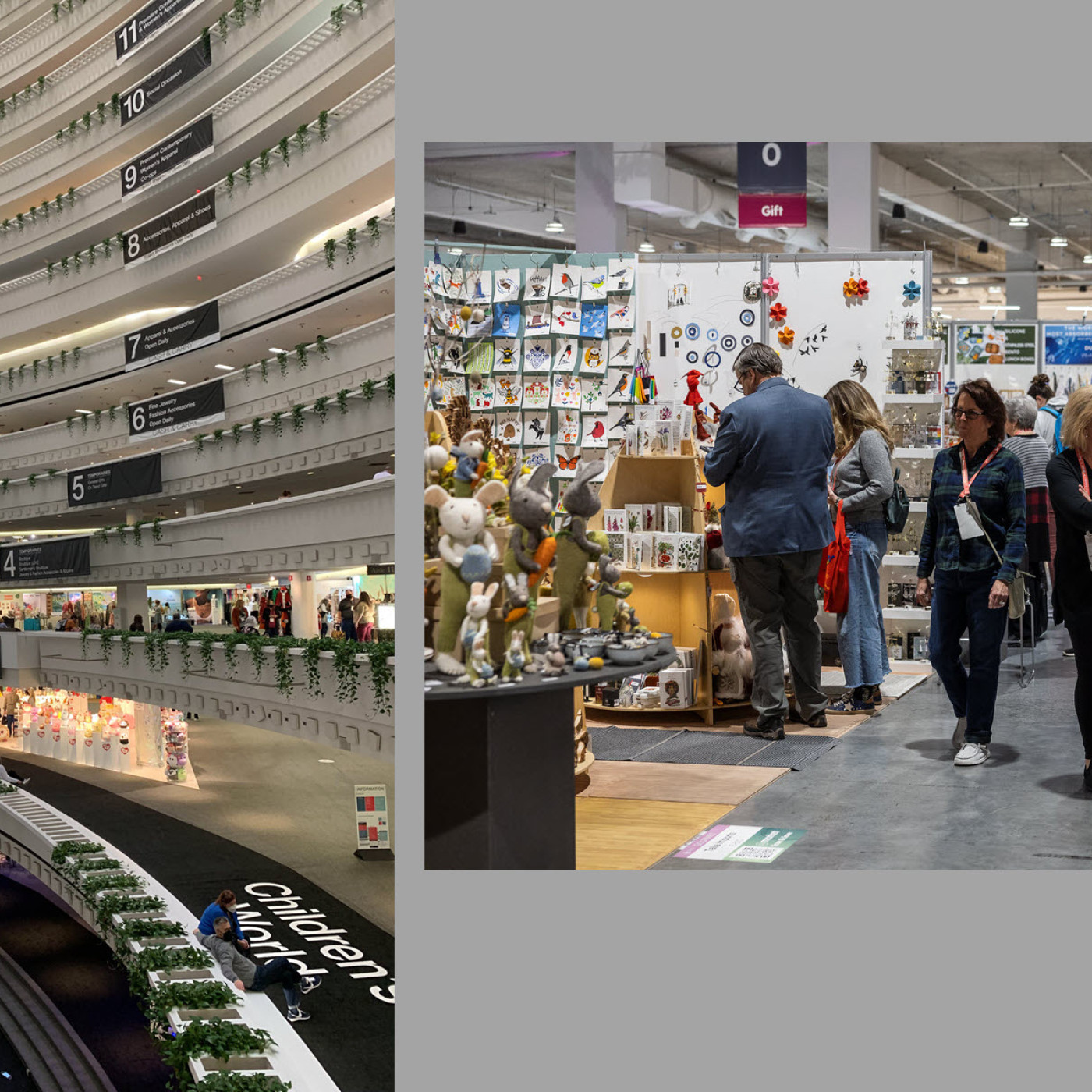Taking the First Wholesale Steps

At this very moment, you feel ready to step out and let the world know you have a wholesale business. You have refined your product line and finalized your pricing. You even have your business card, product line sheet, and artist card all printed and waiting. So, where do you go next?
Even though it is tempting to sign up for the first available trade show, I am going to suggest a little wholesale “practice” to make your entire experience closer to perfect. A few smaller orders can help you discover what you might have missed, particularly in important areas like billing, packaging, and meeting the retailer’s expectations.
So, let’s begin right in your own backyard, or as close as you can get to it. If there is a shop in your town that could be a good fit for your product, why not get their opinion first? Make an appointment, telling the retailer you will be relatively brief and would appreciate their feedback. Bring a few samples of your work, along with your line sheet and printed materials. Make your spiel, ask for a candid opinion, and listen.
Do not be surprised if the retailer does not place an order. Ask a few questions to determine their reasoning. Is it the quality of your work or its price? Ask if they have specific recommendations for you. Thank them profusely for taking the time to look at your work and leave your business card with them.
If they are interested in showing your work, they may ask if you will place it on consignment with them. While that is not optimal, you may want to consider it, because you can still learn a lot about working with a retail establishment. Also, they are local, so you can see how they display your work and easily check if it is selling. Now, keep in mind you really want to sell your work, so do not accept consigning your work very often, particularly if the store is not local.
Look locally to see if there is an arts association with a gift shop specializing in locally made products. If you live in a community with a museum, inquire as to how its gift shop accepts new products. Many nonprofits are proud to represent the work of local creatives. There may even be an artist collective nearby where you could join and display your work. While all of these are small steps, they can teach you a great deal about selling your work to retailers.

You can also go online and look for shops or galleries that advertise they have a periodic “call for new artists or products” — follow the instructions for their next submission period. Another option is to search online for shops that feature products like yours. I do not recommend sending them a product sample, unless they specifically ask for one after you have spoken to them. There is nothing they can do with a single item, and they are way too busy to ship it back. Many artists who travel a lot do some prospecting to find potential stores before their trip and carry a small sample of their work, as well as their printed materials.
Whenever you show your work, pay close attention to the feedback. If you hear the same comments or questions repeatedly, work to solve the problem areas. Ask for suggestions and always express your gratitude for their time and feedback. A potter recently told me that two retailers asked if her gift coffee mug came in a box. Although she had not thought of packaging it, when a third retailer asked her the same question, she answered, “Yes!” Then she went back to her studio and devised a gift box for the mug.
Another excellent first step in wholesaling is to place your products on a wholesale e-commerce platform, such as Faire or IndieMe. Although they differ slightly, both offer the handmade artist an excellent introduction to the wholesale world. In both cases, your work will be juried. If you are accepted, you should be diligent about understanding the fee structure for selling your work and the advantages each platform offers.
Do not think listing your products on the site is the end of your efforts. If they offer you reasonable advertising opportunities, place the ads. When they offer you a chance to participate in an “online expo,” do it and offer your potential customers a buying incentive. It is important to have a very reasonable minimum order requirement, so the retailer does not view it as a barrier. Some artists find that a special “introductory package” of merchandise is an excellent and easy way for the store to sample their work.

It is also advisable to let potential customers know your products are on the site. Put a notice to wholesale buyers on your website and provide a link so they can easily access your work. Make a list of potential store buyers, send them an email announcing your online store, and invite them to become your customer there. Every effort you make to raise awareness about your business profile is important, so do not be shy about promoting your wholesale business in any and every way.
If you are still doing retail shows, take along a package with your wholesale information. Retailers are always looking for new and exciting merchandise, so many of them regularly attend art fairs to scout out potential new items for their store. If you are asked, “Do you wholesale?” be ready to respond by giving them your business card and a line sheet with product information and pricing. Be sure to take the retailer’s business card and make notes about your conversation, so you can follow up with them. It also never hurts to have an order form with you just in case they are ready to order on the spot.
One final recommendation is to join the closed Facebook group Artists Who Wholesale. Once you are approved, you join an experienced group of more than 4,000 artists who have wholesale experience. You can ask for all sorts of information and get a variety of responses. The site is also searchable, so you can enter a topic and read a lot of opinions. Keep in mind that these are all individual artists, and they might be selling a product far different from yours or in a completely different price range, so do your best to ask specific questions and supply some information about your work or problem.
If you are contemplating doing a trade show in the future, it is a great idea to begin preparations many months, or even a year, in advance. This is a good time to start your research. Make a list of your target shows and acquire as much information as possible about each of them. Talk to artists who sell a similar product and weigh their opinions and input.
It is important to be realistic about the costs of doing a show. Find out the various booth options and their costs and ask what additional fees might apply for things like drayage and lighting. Do not forget to estimate your travel costs, as well as housing, parking, and meals — it all adds up. If you can visit the show before applying to it, do so. You will be surprised how many exhibitors and show officials will give you helpful advice.
Spend time examining the booths that sell products like yours. How are greeting cards best displayed? What makes one pottery booth so much more attractive than another? Look at the way hanging objects are displayed and the role additional lighting plays to highlight and enliven a booth.
This is the time to start thinking about your booth and the materials necessary to make it both functional and exciting. For instance, if you sell small items like jewelry, you will notice most jewelry artists feature large, full-color photographs of their work as the backdrop in their booth. It is not too early to realize you need great — and perhaps professional — photos of your work. You do not need to make the posters or backdrops right now, but having a small group of amazing photos ready to use when the time comes will make your pre-show work much easier. Keep a notebook with photos and ideas. They will come in handy very soon.
In the next chapter of The Creative Wholesaler, we will begin our in-depth look at exhibiting at a trade show and using that opportunity to officially launch your wholesale business. So, fasten your seatbelts because our ride is entering exciting territory!
Diane Sulg is executive director of CRAFT and founder & co-chair of American Craft Week (ACW). She is a handmade advocate who provides valuable information in her one-day seminars at wholesale shows throughout the United States. She can be reached at dianesulg@gmail.com.
